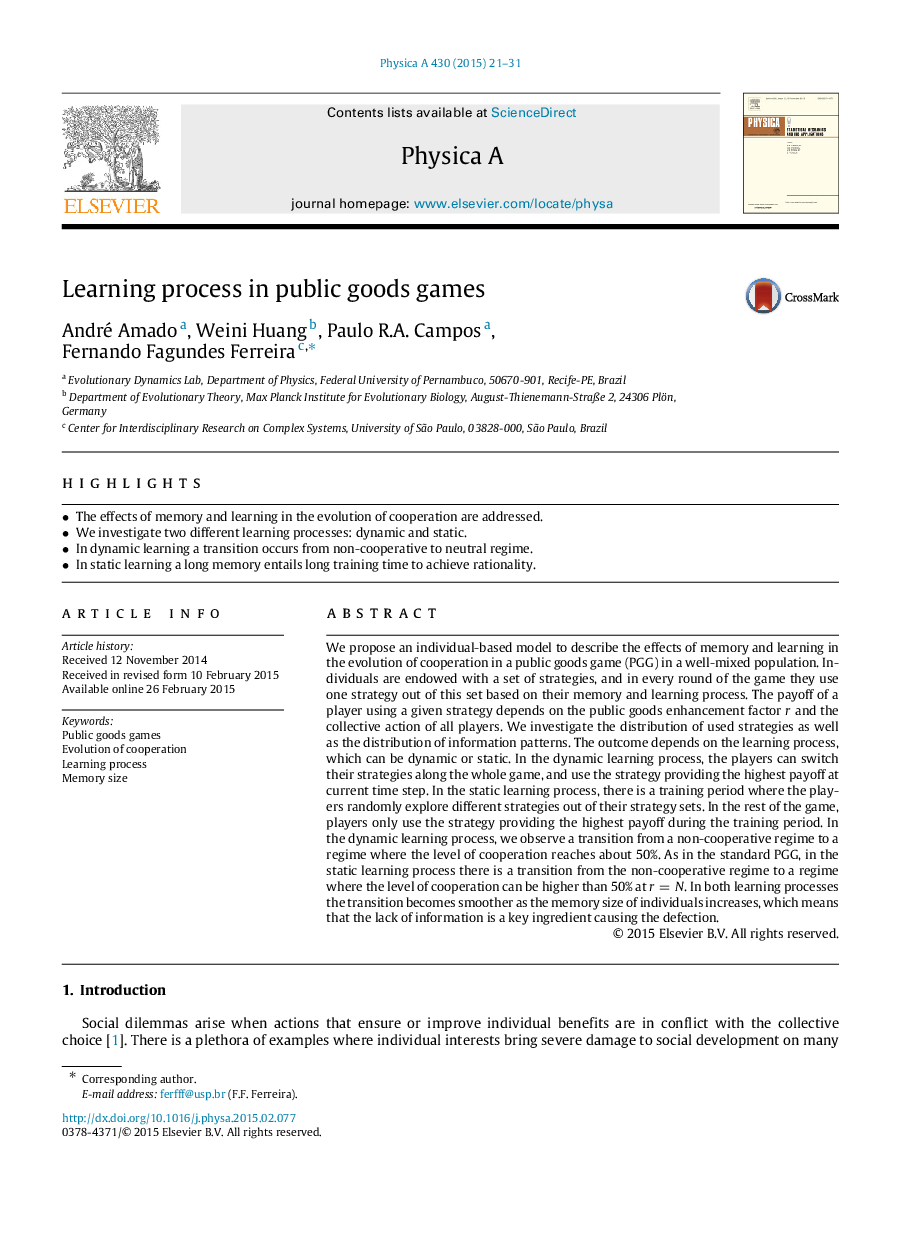| Article ID | Journal | Published Year | Pages | File Type |
|---|---|---|---|---|
| 974398 | Physica A: Statistical Mechanics and its Applications | 2015 | 11 Pages |
•The effects of memory and learning in the evolution of cooperation are addressed.•We investigate two different learning processes: dynamic and static.•In dynamic learning a transition occurs from non-cooperative to neutral regime.•In static learning a long memory entails long training time to achieve rationality.
We propose an individual-based model to describe the effects of memory and learning in the evolution of cooperation in a public goods game (PGG) in a well-mixed population. Individuals are endowed with a set of strategies, and in every round of the game they use one strategy out of this set based on their memory and learning process. The payoff of a player using a given strategy depends on the public goods enhancement factor rr and the collective action of all players. We investigate the distribution of used strategies as well as the distribution of information patterns. The outcome depends on the learning process, which can be dynamic or static. In the dynamic learning process, the players can switch their strategies along the whole game, and use the strategy providing the highest payoff at current time step. In the static learning process, there is a training period where the players randomly explore different strategies out of their strategy sets. In the rest of the game, players only use the strategy providing the highest payoff during the training period. In the dynamic learning process, we observe a transition from a non-cooperative regime to a regime where the level of cooperation reaches about 50%50%. As in the standard PGG, in the static learning process there is a transition from the non-cooperative regime to a regime where the level of cooperation can be higher than 50% at r=Nr=N. In both learning processes the transition becomes smoother as the memory size of individuals increases, which means that the lack of information is a key ingredient causing the defection.
